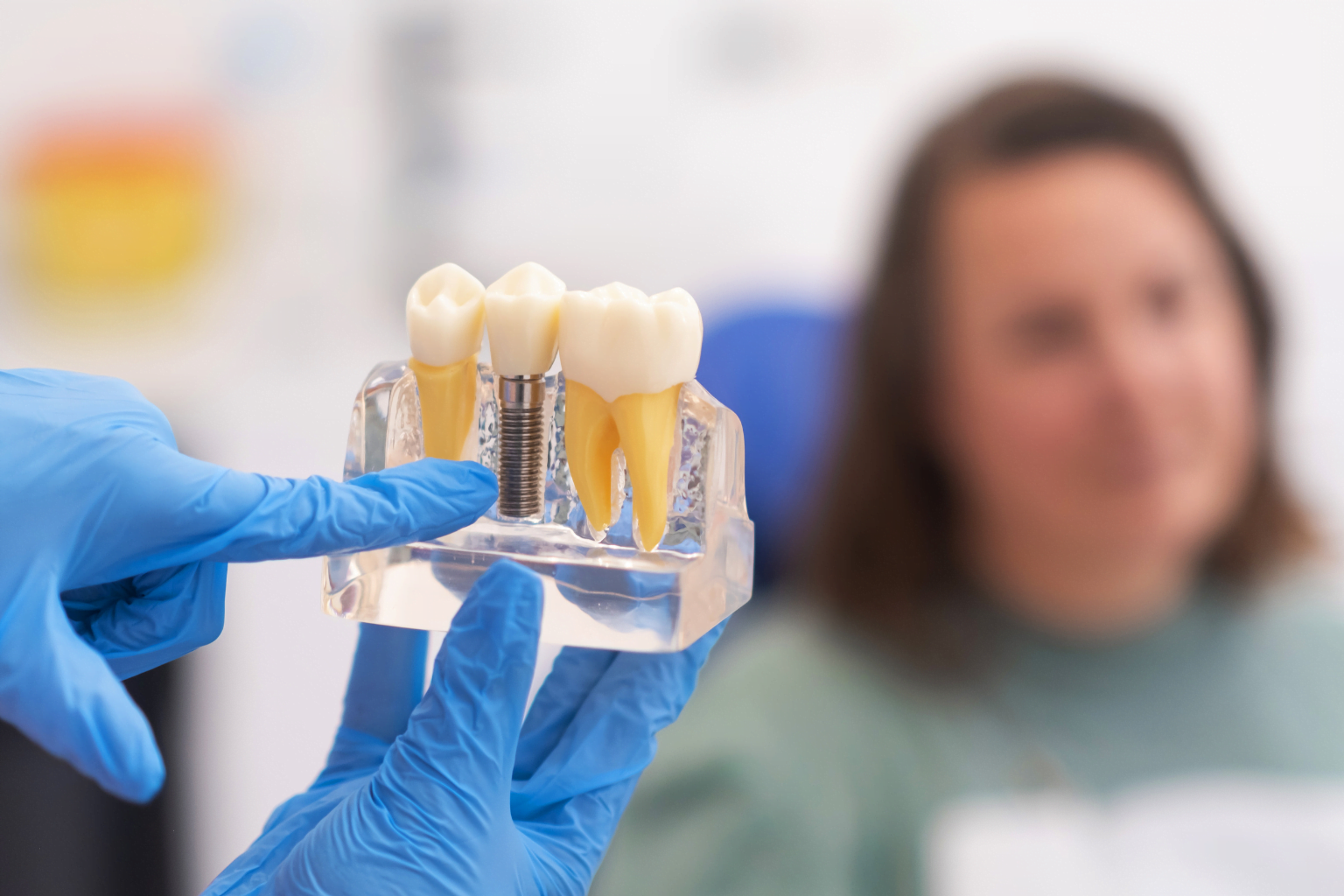Losing teeth can impact not only your smile but also your oral health, confidence, and overall quality of life. Fortunately, dental technology has made remarkable advances, and dental implants are now considered one of the most effective and long-lasting solutions for tooth replacement. If you are considering tooth replacement options, understanding the various types of dental implants is essential. This article explores the different types of Dental Implants in Islamabad available to help you make an informed decision.
What Are Dental Implants?
Dental implants are titanium or zirconia posts surgically placed into the jawbone to serve as artificial tooth roots. These implants provide a sturdy foundation for fixed or removable replacement teeth that look, feel, and function like natural teeth. Unlike dentures or bridges, dental implants preserve jawbone health and prevent bone loss, ensuring facial structure stability.
Why Choose Dental Implants in Islamabad?
Islamabad offers a range of modern dental clinics equipped with advanced technology and experienced dentists specializing in implantology. Choosing Dental Implants in Islamabad means you get:
-
Expert evaluation and personalized treatment plans.
-
State-of-the-art implant materials and techniques.
-
Affordable and competitive pricing.
-
Comprehensive aftercare and follow-up.
With various implant types available, you can select the one best suited to your dental needs and lifestyle.
Different Types of Dental Implants
1. Endosteal Implants (Root Form Implants)
Endosteal implants are the most common type used worldwide. These implants resemble small screws or cylinders and are surgically inserted directly into the jawbone. Once healed, they serve as stable anchors for crowns, bridges, or dentures.
-
Materials: Usually made from titanium or zirconia.
-
Suitability: Ideal for patients with healthy jawbone density.
-
Healing Time: Typically requires 3 to 6 months for osseointegration (bone integration).
2. Subperiosteal Implants
Subperiosteal implants are placed on top of the jawbone but beneath the gum tissue. These implants are used for patients who do not have sufficient bone height or cannot undergo bone grafting.
-
Structure: Metal framework sits on the bone with posts protruding through gums.
-
Usage: Less common but helpful in complex cases.
-
Procedure: Often requires a custom-made framework.
3. Zygomatic Implants
Zygomatic implants are longer implants anchored in the cheekbone (zygoma) rather than the upper jawbone. They are typically used in cases of severe bone loss in the upper jaw where traditional implants aren’t viable.
-
Indication: For patients with significant bone loss avoiding bone grafts.
-
Complexity: Requires advanced surgical expertise.
-
Benefit: Provides an alternative to sinus lift surgeries.
Materials Used for Dental Implants
The material of dental implants plays a crucial role in their durability, compatibility, and aesthetic outcome.
-
Titanium Implants: The gold standard due to their strength, biocompatibility, and osseointegration ability.
-
Zirconia Implants: Metal-free, ceramic implants ideal for patients with metal allergies or preferences for non-metal options. Also known for excellent aesthetics.
Single Tooth Implants vs. Multiple Tooth Implants
-
Single Tooth Implants: Replace one missing tooth, restoring natural function and appearance.
-
Multiple Tooth Implants: Support bridges or implant-supported dentures to replace several missing teeth, offering stability and comfort.
Implant-Supported Dentures
For patients missing most or all teeth, implant-supported dentures provide a stable alternative to traditional dentures. These dentures snap or clip onto implants, preventing slipping and improving chewing ability.
The Implant Procedure: What to Expect
The dental implant process involves several stages:
-
Initial Consultation: Thorough dental exam, X-rays, and treatment planning.
-
Implant Placement Surgery: The implant post is surgically inserted into the jawbone.
-
Healing Period: Osseointegration allows the implant to fuse with bone.
-
Abutment Placement: A connector piece is attached to the implant.
-
Crown or Prosthesis Attachment: Custom-made tooth or denture is fixed onto the implant.
Factors Influencing Implant Choice in Islamabad
-
Bone Density and Quality: Determines the type and size of the implant.
-
Number of Missing Teeth: Influences whether single implants or implant-supported dentures are recommended.
-
Overall Health: Certain medical conditions may affect healing.
-
Budget: Different implant types and materials vary in cost.
Caring for Your Dental Implants
Proper maintenance ensures longevity:
-
Practice good oral hygiene with brushing and flossing.
-
Attend regular dental check-ups.
-
Avoid habits like smoking that can impair healing.
-
Follow your dentist’s aftercare instructions.
Why Dynamic Clinic for Dental Implants in Islamabad?
Dynamic Clinic offers expert dental implant services using cutting-edge technology and personalized care. Their team ensures the highest standards of safety and comfort throughout your implant journey.
Conclusion
Dental implants are a revolutionary solution for tooth loss, and Islamabad provides access to a variety of implant types tailored to individual needs. Whether you need a single tooth replacement or full-arch restoration, understanding the options available is key to making the best choice for your oral health.
If you want to explore options and receive expert advice, consider consulting for Dental Implants in Islamabad to restore your smile confidently and effectively.









